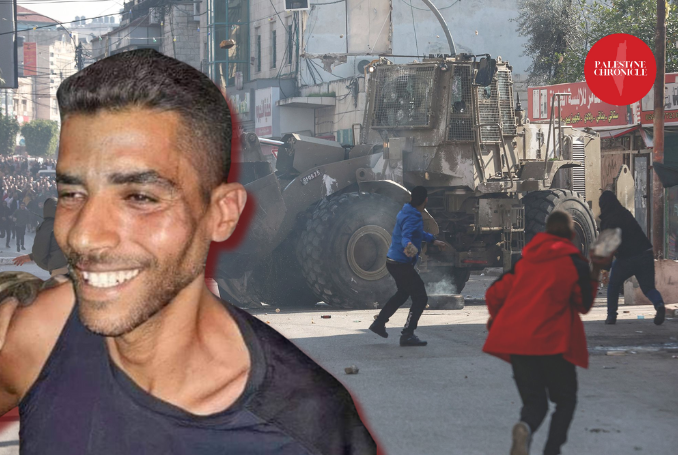
Zakaria Zubeidi, an iconic figure of the Second Intifada and a former leader of the Al-Aqsa Martyrs Brigades, is set to be released as part of the prisoner-exchange deal.
An icon of the Palestinian armed struggle of the Second Intifada, Zakaria Zubeidi is not only a former leader of the Fatah Party’s Al-Aqsa Martyrs Brigades, but embodies the working-class Palestinian refugee story. Born into conflict, he struggled live normally but was repeatedly driven to the path of resistance.
A son of the Jenin Camp, Zubeidi was born in 1976 as the son of refugees displaced from Caesarea by Zionist militias during the ethnic cleansing of Palestinian (1947-49). Growing up, he attended an UNRWA school inside his refugee camp and was recorded to have been an outstanding student.
His father was an educated English teacher, but was prevented from pursuing that career after the Israeli occupation forces accused him of being a member of Fatah, which they then considered a terrorist organization. In order to earn a living, he was instead forced to work physical labour for an Israeli iron foundry.
The first time that Zakaria Zubeidi met an Israeli, was when soldiers came to kidnap his father for being affiliated with Fatah.His father then passed away from cancer, leaving his mother Samira to raise Zakaria and his seven other siblings in a single mother household.
Despite doing well in school, at 13-years-old, Zubeidi was shot in the leg by an Israeli sniper while throwing stones and was forced to undergo four different surgeries. He was left permanently injured and one of his legs would remain longer than the other. At age 15 he was kidnapped by the Israeli occupation forces and held in an Israeli prison for six months for throwing stones, after his release he would then drop out of high school.
After being subjected to ill treatment in the Israeli prison system, the experience only further encouraged Zubeidi to resist the illegal occupation of the West Bank. He was soon arrested again for throwing a molotov cocktail at Israeli soldiers, which would land him in jail for four and a half years. In prison is where he would then go on to join the Fatah Party.
Following the signing of the Declaration of Principles between the Palestine Liberation Organisation (PLO) and Israel, initiating the Oslo Accords (1993-1995), Zubeidi was released from prison as a result of the deal.
He then initially decided to join the newly established Palestinian Authority’s security forces, earning the rank of sergeant, yet resigned to what he said was “nepotism and corruption”. Instead, he decided to work illegally for Israelis renovating homes in places like Haifa and Tel Aviv.
After being found in a stolen car, he was again arrested in 1997, then leading him to his new career after 15-months in jail, as a truck driver in the West Bank. Upon the eruption of the Second Intifada (uprising), in September of 2000, he was no longer able to work due to Israeli closures, curfews, checkpoints and violence, in addition to a general strike.
In late 2001, a close-friend of Zubeidi was assassinated. The following year, tragedy would strike again much closer to home. In March 2002, an Israeli sniper shot his mother through a window while she was taking shelter in a neighbors home, during a routine Israeli incursion into the Jenin Camp.
His mother bled to death on the floor in their neighbors home. Zubeidi’s brother Taha was later also killed by Israeli fire.
Up until that point, Zubeidi had maintained a connection to members of what was called the Israeli “Peace Camp”, as his mother had hosted a joint theater group composed of Israelis and Palestinians called “The Freedom Theatre”.
An interview with Zakaria Zubeidi argued that when his mother was brutally murdered, those Israelis who described themselves as Leftists, had disappeared and didn’t even bother to reach out.
His family home in the Jenin Camp was also demolished by Israeli forces during the major invasion of the refugee camp in 2002, during “Operation Defensive Shield”, which also resulted in the killing of 52 Palestinians and 23 Israeli invading soldiers.
The experience of losing his mother, brother and family home drove Zakaria Zubeidi to rise in the ranks of the Fatah Party affiliated armed group called Al-Aqsa Martyrs Brigades, to become one of its leaders.
Former PA President Yasser Arafat had helped set up groups like Al-Aqsa Martyrs Brigades, as armed groups that operated separately from the PA security forces. While Zubeidi was a critic of the PA’s security forces, he maintained close ties with Arafat and gained huge popularity inside Jenin Camp due to his principled leadership.
Having lost faith in peace with Israel, by 2004 he claimed responsibility for a bombing attack inside Tel Aviv and would become the main power broker inside Jenin Camp, viewing the Palestinian Authority security forces as somewhat of a nuisance.
Later that year, he initially endorsed Fatah’s Marwan Barghouti for the position of President of the Palestinian Authority, but later threw his weight behind Mahmoud Abbas after Barghouti’s imprisonment was deemed an impediment to being able to lead.
Abbas met with Zubeidi at the time. However, reports have indicated he maintained a lack of trust for the PA President. In September of 2005, Al-Aqsa Martyrs Brigades decided to declare a ceasefire that followed a deadly armed clash with the Israeli occupation forces.
He then reportedly attempted once again to open contacts with the Israeli “Peace Camp”, but the Israeli army attempted to arrest him, a situation that he narrowly escaped.
In 2007, Israel included Zakaria Zubeidi in its amnesty deal offered to members of Al-Aqsa Martyrs Brigades. In 2008, he found himself in PA detention but was never granted a full pardon by the Israelis. Up until his eventual arrest by the Israelis in 2012, he was a prominent political figure and had frequently criticised the PA.
In 2018, he was released from Israeli military prison, only to be arrested again shortly after in February of 2019, due to unsubstantiated allegations of him opening fire on an Israeli settler bus.
On September 6, 2021, Zubeidi and five other Palestinian political prisoners managed to escape the Gilboa Israeli prison, digging their way out with spoons, in what was known as the “operation freedom tunnel”. Shortly afterwards, by September 11, he was re-arrested after an extensive Israeli security operation to locate the liberated prisoners.
In 2022 Zubeidi’s brother Daoud was killed by Israeli fire, amidst the resurgence of armed resistance in the Jenin Camp. Then in September of 2024, his son Mohammed Zubeidi, who had been a fighter with the Jenin Brigades, was assassinated by an Israeli drone strike in Tubas.
Zakaria Zubeidi is set to be released during the first phase of the ceasefire/prisoner-exchange agreement between Israel and Hamas. It is speculated that his release could have positive repercussions on the course of the armed struggle inside the West Bank.
(The Palestine Chronicle)
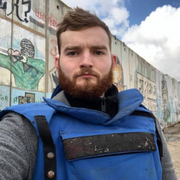
– Robert Inlakesh is a journalist, writer, and documentary filmmaker. He focuses on the Middle East, specializing in Palestine. He contributed this article to The Palestine Chronicle.

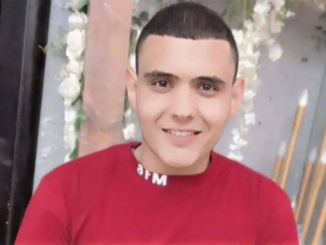
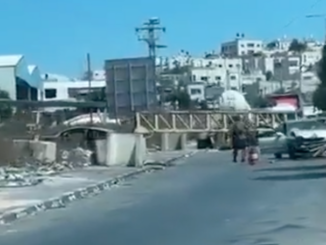
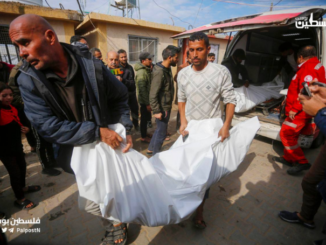




There is a great need for such biographies as this one, to counteract the lies and purposely forgotten details in what passes for news in the West… No human beings should have to endure what this man’s life has been… There must now be the Palestinian State, where israelis cannot kill or maim or control..